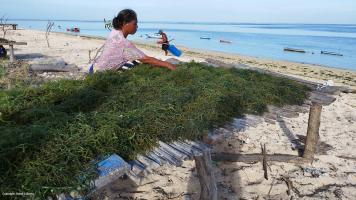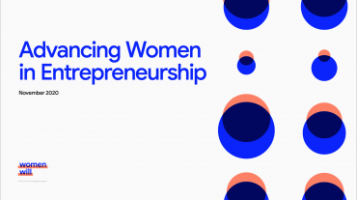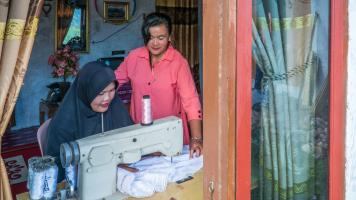Supporting Women as Sales Agents in Indonesia’s Dairy Value Chain
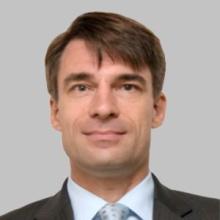
Principal Economist, Private Sector Operations Department, Asian Development Bank
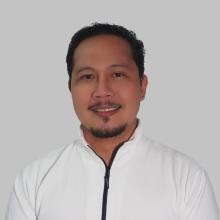
Consultant, Asian Development Bank
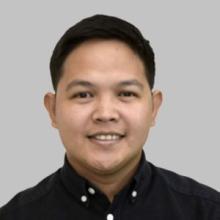
Associate Economics Officer, Private Sector Operations Department, Asian Development Bank
Cultivating customer connections. Miss Cimory sales agent Elmita Sari Dewi delivers dairy products door-to-door, allowing her to build direct relationships with customers while expanding her sales network. Photo credit: Robertus Pudyanto/ADB.
With ADB support, Cimory is scaling up its Miss Cimory distribution program, creating jobs for women and opening access to nutritious dairy products in rural Indonesia.
This article is adapted from The Transformative Power of Inclusive Business: Case Studies on How Commercially Viable Projects Drive Development published by ADB in December 2024.
In the bustling streets of Padang Pasir, West Sumatra, 39-year-old Elmita Sari Dewi recalls her struggles as a street vendor, earning just enough to get by. Her husband’s income of Rp2 million ($125) a month as a construction worker was far from sufficient, forcing their children to submit promissory notes during exams because tuition fees could not be paid on time.
Everything changed when Dewi joined the Miss Cimory distribution program, an initiative of PT Cisarua Mountain Dairy Tbk (Cimory). What began as a leap of faith grew into a journey of empowerment, economic independence, and community leadership.
“I used to struggle to make ends meet as a street vendor. At one point, I had to stop because I ran out of capital. Joining Miss Cimory opened doors I never imagined—it gave me the training, skills, and support to succeed,” she shared.
A social business model for women
Launched in 2013, Miss Cimory recruits and trains women to sell dairy products door-to-door. Agents build personal relationships with customers, expand access to underserved markets, and share knowledge about product benefits. The program primarily targets low- to middle-income women with school-aged children who want to contribute to household income.
Unlike traditional retail, Miss Cimory relies on an exclusive female sales force that now operates across more than 30 cities in Bali, Java, and Sumatra. This provides safe and socially acceptable employment in areas where opportunities are often scarce.
In 2021, the Asian Development Bank (ADB) invested in Cimory to support expansion of its production and distribution capacities, including Miss Cimory. This investment has since helped expand the network from 2,509 agents in 2020 to more than 8,000 as of July 2025, enabling thousands more women to gain stable incomes and financial decision-making power.
Inclusive business in practice
Miss Cimory illustrates how inclusive business strategies can drive both profit and impact. By engaging women as distributors, Cimory accesses markets often neglected by conventional retail, particularly in semi-urban and rural areas. Equipped with portable coolers and local knowledge, agents reach households directly—offering affordable nutrition while creating dignified work.
Cimory’s expansion also strengthens the dairy value chain. Supported by ADB financing, the company created 400 new jobs and is set to benefit an additional 4,200 dairy farmers. Dairy is a significant sector in Indonesia, with more than 100,000 smallholder farmers producing 77% of the country’s milk, often from just three cows each.
Women play a vital but underrecognized role in agriculture. They contribute significantly to milk production yet face barriers, such as limited education, lack of business experience, and restricted access to markets and finance. Traditional gender norms reinforce domestic roles, limiting opportunities for economic participation. Programs like Miss Cimory challenge these barriers by positioning women as entrepreneurs and community leaders.
Leaders’ vision
Cimory’s leadership sees the program as both empowering and practical.
“The Miss Cimory program aims to empower women who may not have had access to higher education and are struggling economically. We strive to inspire them to dream big and equip them with the tools to turn those dreams into reality,” said Hendri Viarta, Cimory’s executive director.
“By encouraging women to achieve financial independence and become leaders within their households and communities, we foster meaningful change,” added CEO Farell Sutantio, who co-founded the program. “Investing in women generates a multiplier effect, benefiting businesses, families, and the entire nation.”
From vendor to entrepreneur
For Dewi, the transformation has been profound. After joining in 2022, she initially earned Rp5.7 million ($356) a month. Through hard work, she achieved her highest total monthly sales of Rp180 million ($11,249), with current net earnings between Rp10 million and Rp15 million ($633–$950)—well above her husband’s wages.
This financial stability has allowed the family to purchase three motorcycles and a car, and tuition fees are now paid on time. Their eldest son plans to pursue a maritime degree—an opportunity once beyond reach. Dewi also dedicates part of her income to supporting four orphans in her community.
“Learning about product knowledge and customer service has been invaluable,” she said. “It boosted my sales, my confidence, and my visibility in the community.”
Lessons and takeaways
- Unusual but smart distribution models can open new markets even for low-income groups or those in previously inaccessible locations. Utilizing a direct selling approach with local distributors helps penetrate underserved markets in a cost-effective manner.
- Offering income opportunities to women with limited access to higher education or formal employment can create a sense of empowerment that not only creates dedicated and loyal sales agents but also allows them to grow and to take on leadership roles in their communities. Encouraging local women to see themselves as entrepreneurs is a powerful tool. Businesses, families, and communities benefit from such transformational power.
- Miss Cimory distributors receive training that enhances their business skills, increasing their confidence and ability to succeed. Such training not only builds their sales skills but also strengthens their personal growth and community leadership.
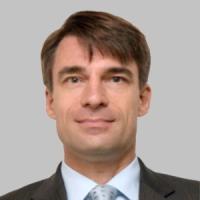
Manfred Kiefer
Principal Economist, Private Sector Operations Department, Asian Development BankManfred Kiefer is a principal economist at ADB’s Private Sector Operations Department. He is primarily involved in assessing development results of ADB’s investments. Prior to this role, he worked as energy economist and development results specialist at different international financial institutions. He holds an MSc in Economics from Freie Universität Berlin.
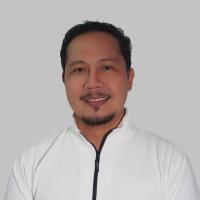
Arvin Yana
Consultant, Asian Development BankArvin Yana is an Australia-educated communications specialist with over 2 decades of experience in strategic communication and knowledge management promoting various development programs across different sectors. He has developed a range of communication and knowledge products highlighting ADB's development impact and its significant role in driving progress and transforming lives.
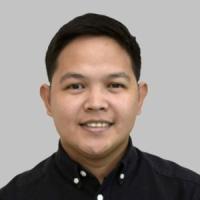
Christian Abeleda
Associate Economics Officer, Private Sector Operations Department, Asian Development BankChristian Abeleda works as an associate economics officer at ADB’s Private Sector Operations Department. He supports private sector projects, particularly in the agribusiness sector, by preparing economic evaluations and enhancing development impacts perspectives. His research focus is on monitoring and evaluation of impacts of agricultural development projects.
